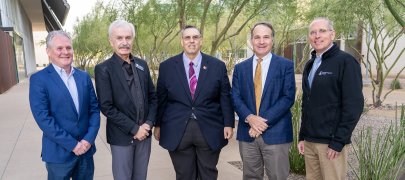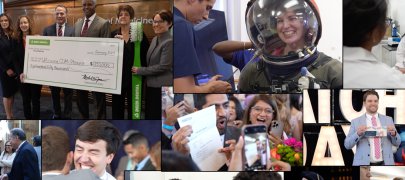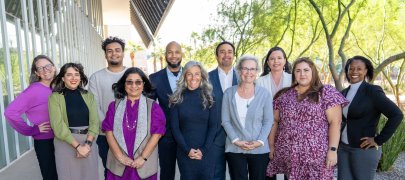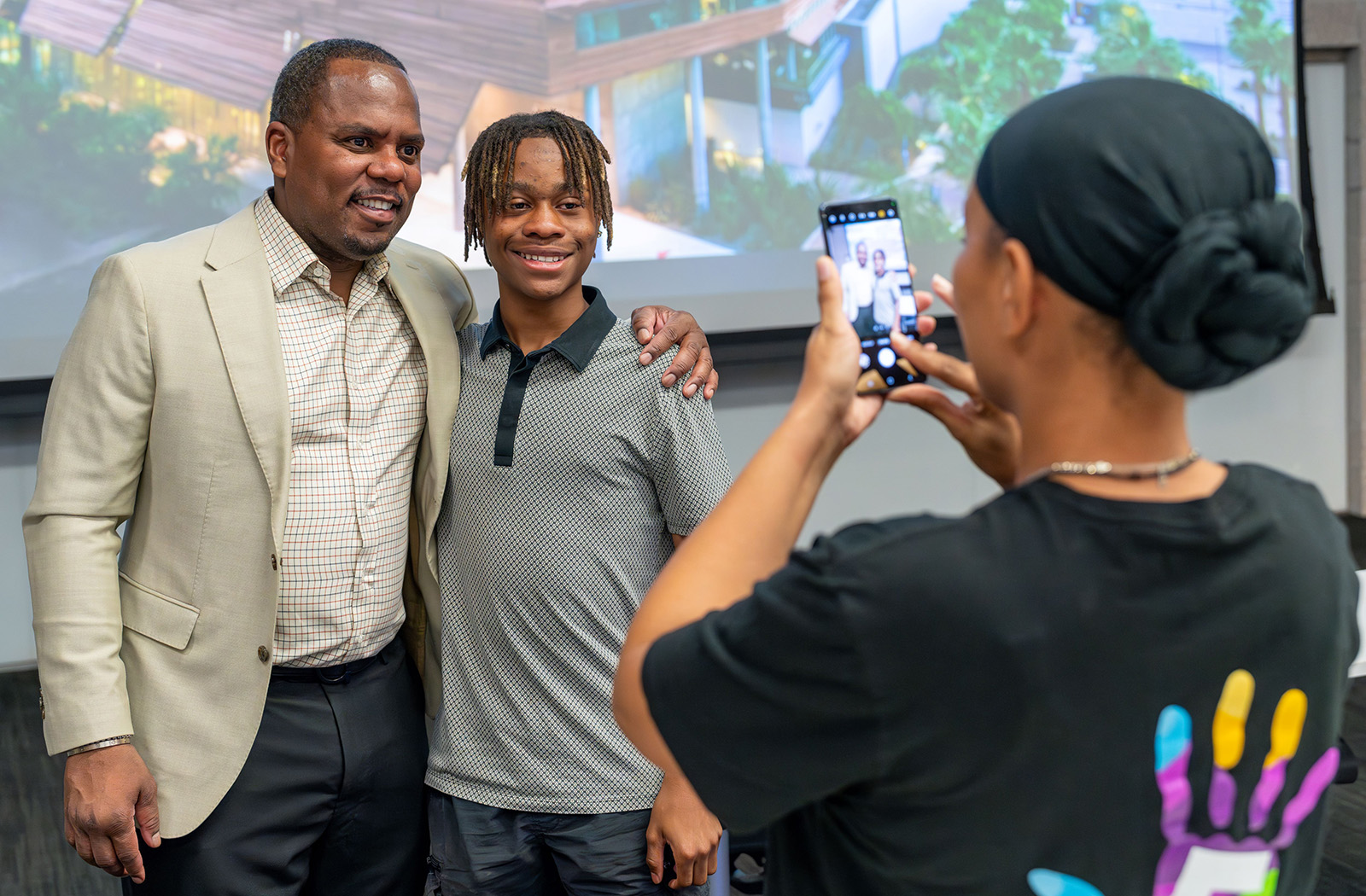
College Hosts Inclusive Excellence Speaker Series to Share Message of Hope and Overcoming Adversity

Young people from disadvantaged backgrounds often must work incredibly hard to fight against those environments to pursue their dreams.
One person who had to do just that was this year’s Inclusive Excellence Speaker Rameck Hunt, MD, an assistant professor of medicine at Rutgers Robert Wood Johnson Medical School and medical director of the Weight Management Program at the University Medical Center of Princeton.
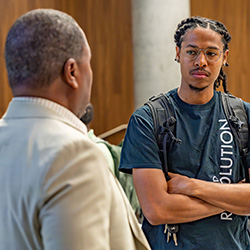
Dr. Hunt came to the University of Arizona College of Medicine – Phoenix’s campus as part of the Office of Equity, Diversity and Inclusion’s (OEDI) Inclusive Excellence Speaker Series to highlight the importance of investing in young people from under-resourced communities.
“In order to make this world a better place, diversity is absolutely important,” Dr. Hunt said. “It’s not about meeting a quota. It’s about elevating our society.”
For more than 20 years, Dr. Hunt has been practicing internal medicine. He grew up in an under-resourced neighborhood located in Newark, New Jersey. His parents were addicted to drugs, and he had a group of friends who often got into trouble.
“The people who I saw who were doing well were drug dealers and robbers and all this other bad stuff,” Dr. Hunt said. “I had family that worked for the Postal Office and that was going to be my dream job because that was all I knew.”
His mother sent him to a college preparatory high school to receive a better education. It was at that school where he would meet his two best friends for life: Sampson Davis, MD, and George Jenkins, DMD, MHA.
Though the three of them were surrounded by negative influences, they were able to complete their advanced placement (AP) classes and eventually become doctors.
“We were a kindred spirit together, and I don’t know if I would be here today if I had not met them,” Dr. Hunt said. “All of our other friends were still doing bad things, and we knew that in order to stay in AP classes, we had to get our work done.”
The three young boys’ first exposure to a career in medicine happened when they attended a free seminar at the library about careers in medicine and dentistry. From there, Dr. Hunt discovered his passion for medicine and teaching.
“So many of the things the speaker said resonated with me, especially things I never thought I could do,” Dr. Hunt said. “Becoming a doctor never crossed people from my community’s mind because they never get to see it happen.”
After the seminar, the three boys made a pact that they would go to college and pursue careers in medicine together. Through hard work and the kindness of strangers who believed in them, the three would eventually enroll in Seton Hall University together.
“There are a lot of things that you don’t know that you may be doing to help and save somebody,” Dr. Hunt said. “The littlest things can be so powerful. You can just care and that can help bring hope back to people.”
Despite facing numerous obstacles in their journey, Drs. Hunt, Jenkins and Davis eventually succeeded in fulfilling their dreams and are determined to create a positive legacy.
By bringing hope to people, Dr. Hunt hopes to invest in children from backgrounds like his. He said that society could miss out on a genius who would make the next best invention if those people do not have access to the same resources or opportunities as those in affluent settings.
“Part of what I want to say is don’t be judgmental when you see these kids because you don’t know what they went through,” Dr. Hunt said. “You don’t know that both of my parents are drug addicts, you don’t know that I slept in the bed with my cousins, and you don’t know that we didn’t have any heat in my house."
Francisco Lucio, JD, senior associate dean of OEDI, spoke highly of the story Dr. Hunt shared with the U of A College of Medicine – Phoenix.
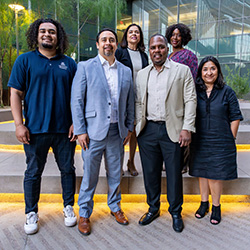
“Dr. Hunt shared an inspirational story about resilience, overcoming odds and the protective element of friendships that are uplifting and supportive on the path to becoming a physician,” Lucio said.
Dr. Hunt is board-certified in internal medicine and obesity medicine. He is the co-author of the New York Times best-selling book, “The Pact: Three Young Men Make a Promise and Fulfill a Dream.”
A little over a decade ago, he was in search for a niche to specialize in. After helping one of his patients struggling with their obesity, Dr. Hunt realized he wanted to pursue obesity medicine to help patients reach their goals in a healthy way.
“I started the comprehensive program from scratch ten years ago,” Dr. Hunt said. “In the beginning, I was a nutritionist, a behavior specialist and a personal trainer until I was able to get the resources to hire people for those positions.”
Dr. Hunt’s presentation is available on-demand.
Topics
About the College
Founded in 2007, the University of Arizona College of Medicine – Phoenix inspires and trains exemplary physicians, scientists and leaders to optimize health and health care in Arizona and beyond. By cultivating collaborative research locally and globally, the college accelerates discovery in a number of critical areas — including cancer, stroke, traumatic brain injury and cardiovascular disease. Championed as a student-centric campus, the college has graduated more than 900 physicians, all of whom received exceptional training from nine clinical partners and more than 2,700 diverse faculty members. As the anchor to the Phoenix Bioscience Core, which is projected to have an economic impact of $3.1 billion by 2025, the college prides itself on engaging with the community, fostering education, inclusion, access and advocacy.
